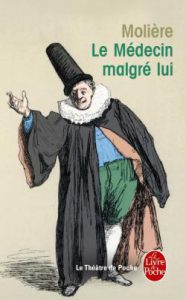At least for organized labor, that’s how May Day should have been celebrated this week. But for today, this awesome bit of history from the Rude Pundit on the Paterson Silk Strike Pageant of 1913:
However, employers refused to negotiate with the organized workers, primarily because they were Wobblies. As John Fitch points out, while the employers were against any kind of union, they might have negotiated with the AFL, but because of the reputation of the Wobblies as “hoodlum, radical, un-American unionists,” they would not sit at the bargaining table with the union. Interestingly, the public had a more violent reaction to the IWW than any violence the Wobblies ever committed. In an article unsympathetic to the Wobblies, Fitch cites several cases of such vigilantism. In Lawrence, two Wobbly leaders were charged with a murder they did not commit, while a soldier who openly bayoneted a striking worker was never even arrested. In San Diego, the IWW was banned from speaking on street corners. When the Wobblies kept returning, they engendered open hostility from the citizens who “tortured,” beat, and sent the defiant Wobblies into the desert. The events at Paterson followed much the same pattern: the Paterson Press implored its readers to help rid the town of the IWW “no matter how it is accomplished.” Others called more explicitly for violence, including one Civil War veteran who urged that new cemeteries “be filled with just such people as those who are now making this disturbance — the first graves to be filled with Haywood and his crowd.” Strikebreakers beat and killed Wobblies yet were never arrested. Only strikers were arrested and their leaders, like Quinlan, were brought to trial. Reed was radicalized even more when he was jailed by police for refusing to clear the streets. In jail with Tresca and others, he was impressed by the way the Wobblies kept up their spirits by singing and educating themselves.
The city officials of Paterson tried to get the AFL to come in once again to organize the workers because the larger union would presumably lead the strikers to a more peaceful and more accommodating resolution of the situation. In a meeting that was already filled with a sense of the theatre that would come later, the AFL organizers arrived and attempted to hold a rally in Turner Hall; they hoisted an American flag, an act that was booed by the workers who, in response, all thrust their red union cards into the air.
This theatricality would, of course, lead to the Pageant, which came into being, according to the memoirs of both Mabel Dodge Luhan and Hutchins Hapgood, when, at a gathering at the apartment of his mistress, Haywood complained to Mabel Dodge about the lack of publicity for the strike outside of the immediate area. Dodge suggested, “Why don’t you bring it to New York and show it to the workers?” Haywood liked the idea but had no concept of how to do so until Reed stepped forward and said, “I’ll do it! My name is John Reed. We’ll make a Pageant of the strike! The first in the world!”
If you don’t know the Rude Pundit, well, I say you should get on over there more oftener. And if there are any terms or people in that passage with whom or which you’re unfamiliar, well, don’t complain about me not giving enough homework.
 The stupidity of millions, millions of individually stupid decisions, has brought a spiteful revolution to its denouement. Or a screaming kid to its mall, whichever you prefer.
The stupidity of millions, millions of individually stupid decisions, has brought a spiteful revolution to its denouement. Or a screaming kid to its mall, whichever you prefer.